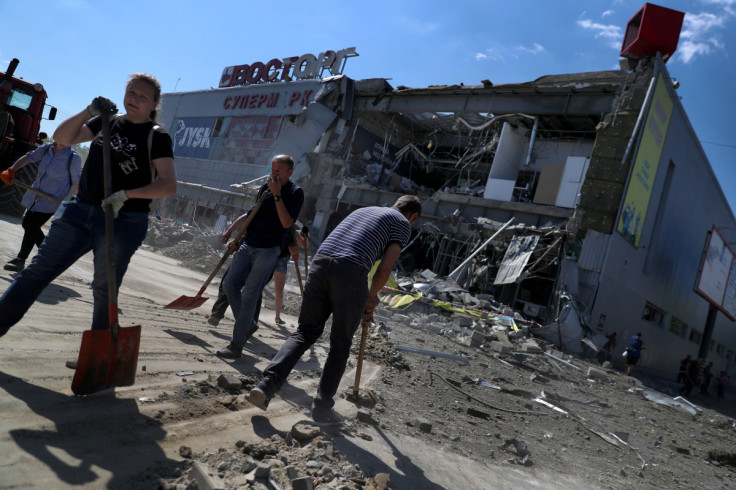Russia Initiates Strikes On Kyiv and Lviv Regions, Poland Activates Aircraft

Russia launched the airstrikes on Sunday against Kyiv and the western Ukrainian region of Lviv. This prompted the armed forces of neighboring Poland to deploy aircraft to maintain airspace safety in the vicinity of the border in response to the escalating situation, reported Reuters.
U.S. Ambassador Bridget Brink posted on X early on Sunday, saying, "All of Ukraine is under an air alert and has been advised to seek shelter for the third pre-dawn morning this week."
For the third pre-dawn morning this week, all of Ukraine is under an air alert and has been advised to seek shelter. Russia continues to indiscriminately launch drones and missiles with no regard for millions of civilians, violating international law.
— Ambassador Bridget A. Brink (@USAmbKyiv) March 24, 2024
Meanwhile, Poland's armed forces too shared a post on X, saying, "Polish and allied aircraft have been activated, which may result in increased noise levels, especially in the south-eastern part of the country."
Russia has not yet commented on Sunday's strikes.
This comes after dozens of missiles fired by Russia on Friday struck a dam, knocking out power for a million people in Ukraine.
Russia had earlier attacked Ukraine's energy system with one of its largest missile launches, hitting at least ten different regions of the nation.
At least five people were killed, and many Ukrainians were left without power in multiple cities. A nuclear plant that posed a safety risk throughout the conflict was momentarily without power due to damage to the nation's largest hydroelectric plant, reported AP. The Zaporizhzhia plant has been occupied by Russian troops since early days of the invasion, and fighting around it has raised the risk of a nuclear accident.
Several explosions occurred in the Ukrainian capital after air defense systems were activated to thwart the attack, according to Kyiv Mayor Vitali Klitschko, who made the announcement on the messaging app Telegram.
President of Ukraine Volodymyr Zelenskyy had reiterated his demands for Western allies to provide air defense systems, claiming that Russia had attacked his nation with 90 missiles and 60 drones manufactured in Iran as part of a "war with people's everyday lives."
I am grateful to everyone who has been working continuously for the second day in a row to normalize the situation following Russia’s strikes on Thursday night. Every effort is being made to restore power to every city and community. It's a challenging task, especially in… pic.twitter.com/HpkpdVATTy
— Volodymyr Zelenskyy / Володимир Зеленський (@ZelenskyyUa) March 23, 2024
Days after Putin strengthened his hold on power in his nation by winning a new six-year term as president, EU leaders decided to move forward with a plan to use the proceeds from assets frozen by the Russian Central Bank to outgun Ukraine.
© Copyright IBTimes 2024. All rights reserved.






















